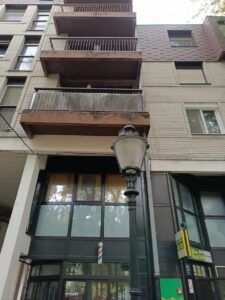Noisy neighborhoods: how they affect property value.
In urban environments, noise pollution has become an increasingly prevalent issue, affecting the quality of life for residents and influencing property values. From the hum of traffic to the clamor of nightlife, the sounds that permeate a neighborhood can significantly impact its desirability. This article explores how noisy neighborhoods affect property values, examining the psychological, economic, and social implications of living in such areas.
The Psychological Impact of Noise
Noise pollution can have profound psychological effects on individuals. Studies have shown that prolonged exposure to loud sounds can lead to increased stress levels, anxiety, and even depression. Residents in noisy neighborhoods often report difficulties in concentrating, disrupted sleep patterns, and a general decline in mental well-being. This psychological burden can deter potential buyers, who may prioritize tranquility and peace over the allure of a bustling environment.
Moreover, the perception of noise can vary from person to person. While some individuals may thrive in vibrant, lively areas, others may find the constant din overwhelming. This subjectivity can create a divide in the housing market, where properties in quieter locales are often seen as more desirable. As a result, homes in noisy neighborhoods may struggle to attract buyers, leading to a decrease in property values.
The cumulative effect of these psychological impacts can be significant. As more residents express dissatisfaction with their living conditions, the overall appeal of the neighborhood diminishes. This decline in desirability can create a downward spiral, where property values continue to drop as more homeowners seek to sell their homes, further exacerbating the noise issue as turnover increases.
Economic Consequences of Noise Pollution
The economic implications of living in a noisy neighborhood extend beyond individual homeowners. Property values are intrinsically linked to the overall economic health of an area. When noise pollution becomes a defining characteristic of a neighborhood, it can deter potential investors and businesses from establishing themselves in the area. This lack of investment can lead to a stagnation in economic growth, further impacting property values.
Real estate professionals often use noise levels as a key factor in property appraisals. Homes located near busy roads, airports, or nightlife districts may be assessed at lower values due to the perceived inconveniences associated with noise. This can create a ripple effect, where lower property values lead to reduced tax revenues for local governments, ultimately affecting public services and infrastructure.
Furthermore, the economic consequences of noise pollution can extend to rental markets. Landlords in noisy neighborhoods may struggle to attract tenants, leading to higher vacancy rates and lower rental prices. This not only affects individual property owners but can also contribute to a broader decline in the neighborhood’s economic vitality, as fewer residents mean less spending in local businesses.
Social Implications of Noisy Neighborhoods
The social fabric of a community can also be influenced by noise pollution. In neighborhoods where noise is a constant presence, residents may feel less inclined to engage with their surroundings. The discomfort caused by excessive noise can lead to social isolation, as individuals retreat into their homes to escape the clamor outside. This disengagement can weaken community ties and reduce the overall sense of belonging among residents.
Moreover, noisy neighborhoods can exacerbate tensions between residents. Disputes over noise levels, whether from late-night parties or construction work, can lead to conflicts that strain relationships within the community. This social discord can further diminish the appeal of the neighborhood, making it less attractive to potential buyers and renters alike.
As communities grapple with the challenges posed by noise pollution, local governments and organizations may need to implement strategies to mitigate its effects. Initiatives such as noise barriers, zoning regulations, and community engagement programs can help address the issue and improve the overall quality of life for residents. By fostering a more harmonious living environment, neighborhoods can enhance their desirability and, in turn, protect property values.
In conclusion, the impact of noisy neighborhoods on property values is multifaceted, encompassing psychological, economic, and social dimensions. As urban areas continue to grow and evolve, addressing noise pollution will be crucial for maintaining the appeal of residential communities. By understanding the implications of noise on property values, homeowners, investors, and local governments can work together to create more desirable living environments that enhance both quality of life and economic stability.


